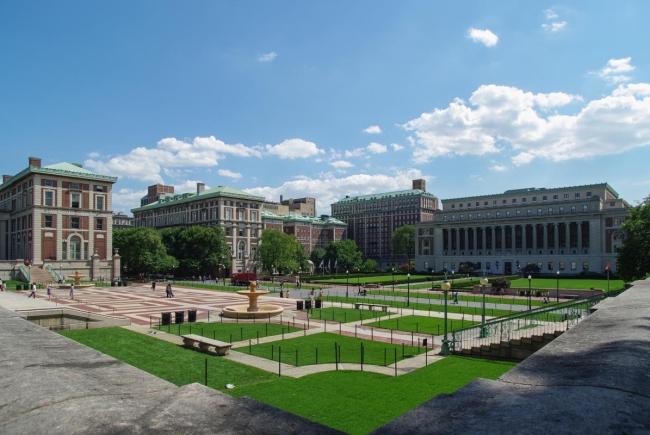You have /5 articles left.
Sign up for a free account or log in.

Columbia University
ISTOCKPHOTO.COM/HaizhanZheng
Columbia University graduate students are organizing in opposition to the university's announcement last week that it will not appoint graduate students to teaching or research appointments, or pay them, if they are outside the country this fall. An open letter organized by a union of teaching and research assistants, the Graduate Workers of Columbia, condemned the decision, noting that for many students "returning to New York City is not an option with global travel restrictions and the ongoing global public health crisis."
Columbia, like many universities, is planning on opening this fall with most courses taught in remote or hybrid form. In an email to students in the Graduate School of Arts and Sciences, Columbia framed the decision not to employ or pay students for teaching or research assistantships while they are located abroad as intended "to avoid jeopardizing international students' visa status."
More generally, the university said in the email that the policies on international remote work "are informed by issues of work authorization, risk to visa status, tax implications for individuals and the University, and applicable local laws."
But Columbia graduate student organizers pointed to other universities, including Cornell, Rutgers, and Yale Universities and the Universities of Illinois, Chicago and Pennsylvania, all of which have established temporary policies to allow for payment of at least some graduate students for teaching and research assistantships if they are unable to return to the U.S. this fall.
Guidance from the Department of Homeland Security's Student and Exchange Visitor Program, last updated on Friday, states that international students can engage in what would normally be on-campus employment remotely as long as the work can be done through remote means and colleges can document the services students are providing from off-campus.
One expert on student visa law, Stephen Yale-Loehr, a professor of immigration practice at Cornell, said he was not aware of a visa-related reason a university couldn't hire noncitizens located overseas.
"Arguably, if a university hires someone to work overseas, the institution has to comply with the tax and labor laws of that country," Yale-Loehr said. "That can be complicated, depending on the country. However, I don't know of any visa-related reasons why a university can't employ a noncitizen overseas, as long as the work is properly documented and the employee and the university comply with the relevant visa rules."
Elizabeth Goss, an immigration lawyer who also specializes in academic visa issues, likewise said she was not aware of a relevant visa-related restriction. Similar to Yale-Loehr, she said she suspects the reasoning for the policy may relate to international taxation issues, which are "quite complicated and understandably fraught for institutions."
Columbia appears to be backing away from its policy announcement. In a statement on Monday the university said administrators "are actively exploring options that will allow the university to pay service stipends to graduate students who are abroad and have valid U.S. employment authorizations; we hope to have a resolution shortly."
Yarran Hominh, a Ph.D. candidate in philosophy at Columbia, said the policy has put many international students located outside the U.S. in a precarious situation. Hominh, who is from Australia, said the policy does not directly affect him because he is already in the U.S. and has a dissertation fellowship this year. But he said others stand to be adversely impacted.
"Many international students have gone home, have gone home to places where they won't be able to get back to the States given the travel bans," said Hominh.
"They won't be able to get back to the States, which means they won't be able to teach, which means they won't have funding for the fall semester at least, assuming they can get back to the spring. Some of them have family who are in some way dependent on their stipend. They're going to have to go look for jobs in their home countries and given the state of the world that's obviously not an easy thing to do. There's a lot of precarity for those folks."




